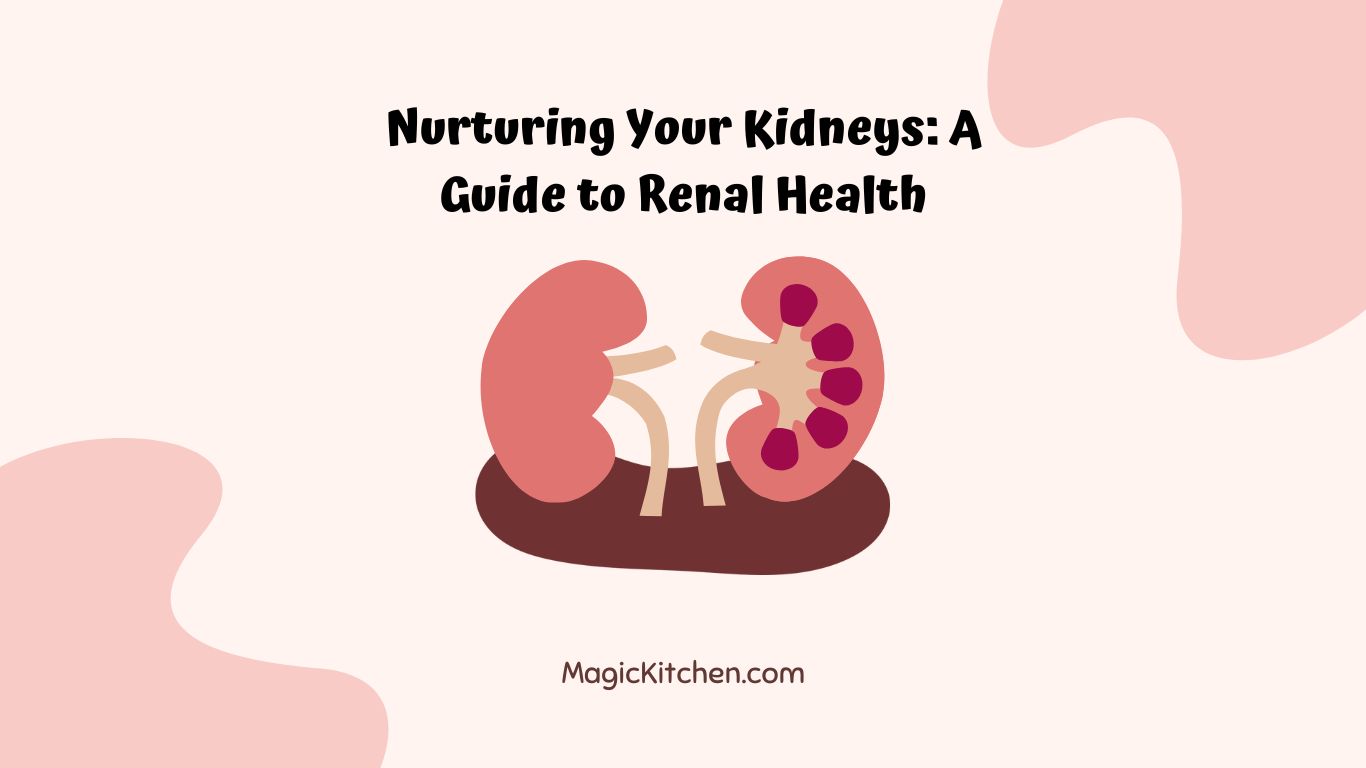Nurturing Your Kidneys: A Guide to Renal Health
The kidneys are often considered one of the most vital organs in the human body, yet they often don’t receive the attention and care they truly deserve. These two bean-shaped organs, each about the size of a fist, play a critical role in maintaining our overall health and well-being. From filtering waste products from our blood to regulating blood pressure and electrolyte balance, the kidneys are essential for our survival. In this article, we’ll explore the importance of renal health, common kidney conditions, and ways to keep your kidneys functioning at their best.
The Role of the Kidneys
- Filtration of Waste Products: One of the primary functions of the kidneys is to filter waste products and excess substances from the blood, creating urine. This process helps maintain a healthy balance of electrolytes and fluids in the body.
- Blood Pressure Regulation: The kidneys play a pivotal role in regulating blood pressure. They release a hormone called renin, which constricts blood vessels and increases blood pressure when it’s too low. Conversely, they decrease renin production to lower blood pressure when it’s too high.
- Red Blood Cell Production: The kidneys produce erythropoietin, a hormone that stimulates the bone marrow to produce red blood cells. Adequate red blood cell levels are essential for carrying oxygen throughout the body.
- Acid-Base Balance: Kidneys help maintain the body’s pH balance by excreting hydrogen ions and reabsorbing bicarbonate ions.
Common Kidney Conditions
To understand the importance of renal health, it’s crucial to be aware of common kidney conditions that can impact their function:
- Chronic Kidney Disease (CKD): CKD is a long-term, progressive condition where the kidneys gradually lose their function. It can result from diabetes, high blood pressure, or other factors. Early detection and management are vital in preventing further kidney damage.
- Kidney Stones: These are hard deposits of minerals and salts that form in the kidneys. They can be painful when they pass through the urinary tract. Staying hydrated and maintaining a balanced diet can help prevent kidney stones.
- Urinary Tract Infections (UTIs): Infections in the urinary tract can affect the kidneys if left untreated. Symptoms include frequent urination, pain while urinating, and fever. Proper hygiene and prompt treatment of UTIs are crucial for kidney health.
- Polycystic Kidney Disease (PKD): PKD is a genetic disorder that causes fluid-filled cysts to form in the kidneys. These cysts can eventually lead to kidney damage and require medical management.
Ways to Promote Renal Health
Now that we understand the importance of kidney health and some common issues, let’s explore how to take care of these vital organs:
- Stay Hydrated: Drinking an adequate amount of water helps flush out waste products and toxins from the body, reducing the risk of kidney stones and UTIs.
- Maintain a Balanced Diet: A diet rich in fruits, vegetables, whole grains, and lean proteins can help prevent high blood pressure and obesity, reducing the risk of kidney disease.
- Limit Sodium Intake: Excessive salt intake can raise blood pressure, which strains the kidneys. Aim to limit your daily sodium intake to around 2,300 milligrams.
- Exercise Regularly: Physical activity helps control blood pressure, regulate weight, and improve overall health. Consult with your healthcare provider to determine a suitable exercise routine.
- Control Blood Sugar: If you have diabetes, managing your blood sugar levels is essential in preventing kidney damage. Follow your healthcare provider’s recommendations for diabetes management.
- Avoid Overuse of Painkillers: Some over-the-counter pain relievers, when used excessively, can harm the kidneys. Follow the recommended dosage and consult a healthcare professional if you have concerns.
- Regular Check-ups: Routine medical check-ups can detect kidney issues early. If you have risk factors like diabetes or high blood pressure, regular kidney function tests are crucial.
Conclusion
Our kidneys are unsung heroes, tirelessly working to maintain our health. Understanding their importance and taking steps to promote renal health is essential for a long and healthy life. By adopting a healthy lifestyle, staying hydrated, and seeking medical attention when needed, we can show our kidneys the care and appreciation they deserve. Remember, a little effort in nurturing your kidneys can go a long way in ensuring your overall well-being.


